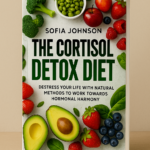In today’s fast-paced world, stress has become a constant companion for many of us. Deadlines, responsibilities, and endless to-do lists can leave us feeling drained, overwhelmed, and disconnected from ourselves. But what if the key to reclaiming your peace and energy lies in something simple yet profound: self-care?
Thank you for reading this post, don’t forget to subscribe!This guide dives deep into how self-care isn’t just a buzzword—it’s a science-backed strategy to reduce stress, boost happiness, and transform your overall well-being. Let’s explore how you can harness its power!
🧘 Why Self-Care Matters More Than Ever
Self-care is more than bubble baths and face masks (though those count too!). The World Health Organization (WHO) defines it as “the ability to promote health, prevent disease, and cope with illness—with or without a healthcare provider.” 🌍 It’s a holistic practice that touches every part of your life:
- Physical (exercise, sleep, nutrition)
- Mental (mindfulness, learning)
- Emotional (self-compassion, boundaries)
- Social (meaningful connections)
- Spiritual (purpose, gratitude)
When neglected, stress creeps in. Chronic stress triggers your body’s “fight-or-flight” mode, flooding it with cortisol, disrupting sleep, weakening immunity, and even causing anxiety or burnout. 😰
The good news? Self-care acts like a reset button. Let’s break down how.
💥 How Self-Care Fights Stress: The Science
1. Physical Self-Care: Your Body’s Best Defense
- Exercise 🏃♀️: Boosts endorphins (natural mood lifters) and lowers cortisol. Even a 10-minute walk works!
- Sleep 💤: Poor sleep = higher stress. Aim for 7-9 hours nightly. Try a calming bedtime routine (no screens!).
- Nutrition 🥑: Processed foods and caffeine spike stress. Focus on whole foods like leafy greens, nuts, and berries.
- Hydration 💧: Dehydration worsens fatigue and irritability. Drink 8 glasses of water daily.
2. Mental & Emotional Self-Care: Calm the Chaos
- Mindfulness & Meditation 🧘♂️: Reduces rumination (overthinking) by anchoring you to the present. Apps like Headspace can guide you.
- Journaling 📔: Writing down worries helps process emotions. Try gratitude journaling to shift focus to positives!
- Self-Compassion 💖: Replace self-criticism with kindness. Research shows self-compassion lowers cortisol and builds resilience.
3. Social & Spiritual Self-Care: Connect and Reflect
- Quality Time 👨👩👧👦: Strong relationships buffer stress. Schedule regular catch-ups with loved ones.
- Nature Therapy 🌳: Spending 20 minutes outdoors lowers stress hormones. Try “forest bathing” (walking mindfully in nature).
- Gratitude Practices 🙏: Reflect on 3 things you’re grateful for daily. This rewires your brain to focus on joy.
🔥 Answering Your Top Self-Care Questions
Let’s tackle the questions you’re asking most:
❓ How Can Taking Care of My Body Reduce Stress?
Your body and mind are deeply connected. Exercise releases tension, sleep restores energy, and nourishing foods stabilize mood. Think of it as fueling your inner warrior against stress!
❓ How Do I Start a Self-Care Routine?
- Start Small: 5 minutes of deep breathing or stretching daily.
- Schedule It: Block self-care time like a meeting.
- Mix It Up: Combine activities (e.g., walk while listening to a podcast).
❓ Why Is Self-Love Critical for Stress Relief?
Hating yourself during stress adds fuel to the fire. Self-love lets you say, “I’m human, and that’s okay.” This reduces emotional intensity and helps you bounce back faster.
❓ What’s the #1 Way to Destress Quickly?
Try the 4-7-8 breathing technique:
- Inhale for 4 seconds.
- Hold for 7 seconds.
- Exhale for 8 seconds.
Repeat 3x. Instant calm! 🌬️
🌈 The 7 Pillars of Self-Care (And How to Master Them)
The International Self-Care Foundation highlights 7 pillars for holistic well-being:
- Knowledge & Health Literacy 📚
- Mental Wellness 🧠
- Physical Activity 🏋️
- Healthy Eating 🥗
- Risk Avoidance 🚭
- Good Hygiene 🧼
- Rational Use of Products 💊
Pro Tip: Focus on 1-2 pillars weekly. For example: “This week, I’ll walk daily and journal before bed.”
🚀 5 Life-Changing Tips to Reduce Stress NOW
- Set Boundaries 🛑: Say “no” to non-essential tasks. Protect your time like gold.
- Digital Detox 📵: Unplug for 1 hour daily. Your brain needs rest!
- Laugh More 😂: Watch a comedy or call a funny friend. Laughter lowers cortisol.
- Declutter 🧹: A tidy space = a tidy mind. Start with your desk or closet.
- Ask for Help 🤝: Therapy, support groups, or talking to a friend can lighten the load.
💡 The Power of Self-Awareness & Self-Control
- Self-Awareness 🕵️♀️: Notice stress triggers (e.g., tight deadlines). Pause and ask: “What do I need right now?”
- Self-Control 🧘♀️: Pause before reacting. Take 3 deep breaths before responding to a stressful email.
🎯 How to Practice Self-Care in Stressful Times
- Micro-Moments: Stuck at work? Do 2 minutes of stretching or sip herbal tea.
- The 5-4-3-2-1 Grounding Technique: Name 5 things you see, 4 you feel, 3 you hear, 2 you smell, 1 you taste. Instantly reduces anxiety!
- Affirmations 💬: Repeat: “I am enough. I can handle this.”
🌱 Self-Care for Students: Beat Burnout
- Study Sprints: 25 minutes of focus + 5-minute breaks (try the Pomodoro Technique).
- Power Naps: 20 minutes max to recharge.
- Campus Resources: Use counseling services or peer support groups.
💬 Inspiring Self-Care Quotes
- “Rest is not idle, not wasteful. Sometimes rest is the most productive thing you can do.” – Unknown
- “You can’t pour from an empty cup. Take care of yourself first.” – Eleanor Brown
✨ Final Takeaway: Your Well-Being Is Non-Negotiable
Self-care isn’t selfish—it’s survival. By prioritizing it, you’re not just reducing stress; you’re building a life filled with resilience, joy, and purpose. Start small, stay consistent, and watch your well-being soar.
Your turn: What’s one self-care habit you’ll try this week? Share below! 👇









































